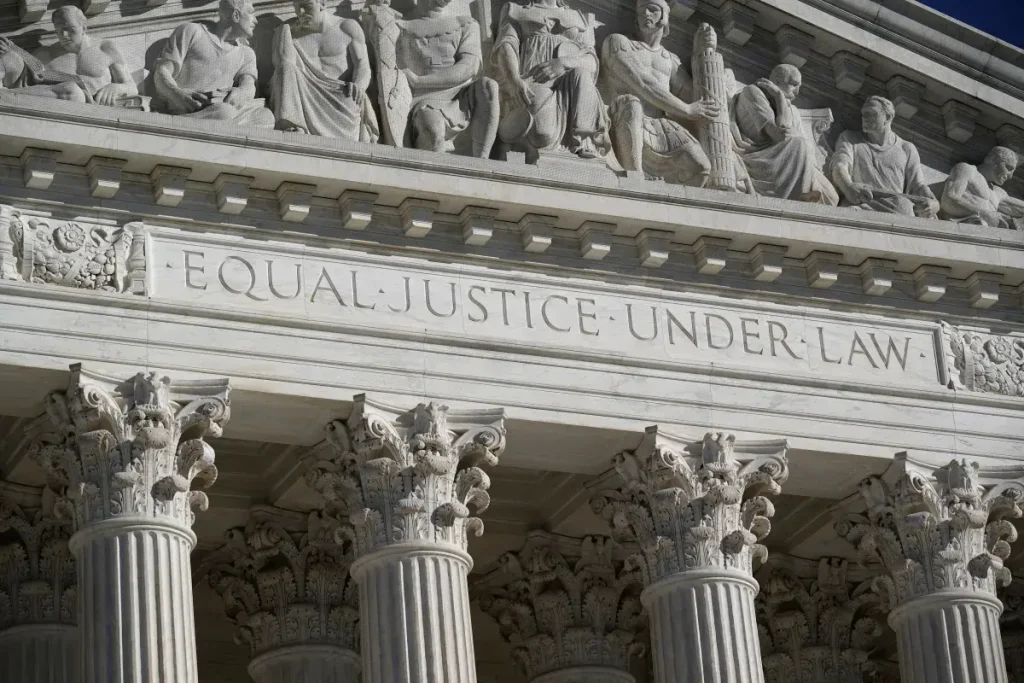Trump Warns Supreme Court Ruling on Tariffs Could Determine America’s Future
President Donald Trump has issued a stark warning about an upcoming Supreme Court case that could significantly impact his ability to impose tariffs, calling it “one of the most important in the History of the Country.” In a passionate post on his Truth Social platform, Trump argued that limiting presidential tariff powers would leave America “defenseless” against global competitors and potentially lead to the “ruination” of the nation. The case represents a pivotal moment in American trade policy, with Trump framing the stakes in dramatic terms that reflect his longstanding belief in tariffs as essential tools for economic leverage and national security. While critics view his approach as overstepping constitutional boundaries, supporters maintain that executive flexibility on trade is vital for America’s competitive position on the world stage.
The Supreme Court is scheduled to hear oral arguments on November 5 in two consolidated cases, Learning Resources, Inc. v. Trump and V.O.S. Selections, Inc. v. Trump, which challenge presidential authority to impose tariffs without congressional approval. The plaintiffs—including small business importers and several states—argue that Trump exceeded his powers under the International Emergency Economic Powers Act, contending that the Constitution specifically grants Congress, not the president, the authority to set tariffs. Trump’s legal team counters that presidents must retain broad discretion to act swiftly on trade and national security matters. This constitutional showdown arrives at a moment when tariffs have become a cornerstone of Trump’s economic policy, positioning the case as not just a legal dispute but a referendum on his approach to international trade relations.
In his Truth Social post, Trump credited his use of tariffs with strengthening the U.S. economy and bolstering national security during his presidency. “Tariffs have brought us Great Wealth and National Security in the nine months that I have had the Honor to serve as President,” he wrote, pointing to stock market highs, low inflation, and enhanced national security as evidence of his policy’s success. He particularly emphasized how tariffs provided crucial leverage in trade negotiations, citing recent talks with China: “Our recent successful negotiation with China, and many others, put us in a strong position only because we had Tariffs with which to negotiate fair and sustainable Deals.” This perspective frames tariffs not merely as economic tools but as diplomatic instruments that strengthen America’s global bargaining position.
The stakes of this case extend far beyond Trump’s presidency, potentially reshaping the balance of power between branches of government for decades to come. A ruling against Trump could significantly restrict presidential authority to impose tariffs and limit future administrations’ flexibility in trade negotiations. Conversely, a ruling in his favor would affirm broad executive control over U.S. trade policy, potentially expanding presidential power in ways that critics find constitutionally troubling. The case highlights the tension between the Constitution’s explicit grant of trade authority to Congress and the modern need for executive flexibility in rapidly changing global markets. Trump characterized the opposition to his tariff policies as coming from three sources: “Foreign Countries who for years have taken advantage of us, those who hate our Country and, the Democrats, because our numbers are insurmountably good.”
Legal analysts note that this case represents uncharted territory in American governance. As Alan Wolff, former deputy director of the World Trade Organization, observed, “No president has ever done anything like this.” Trump’s approach to tariffs has been exceptional in its scope and assertiveness, raising fundamental questions about presidential authority that the Court must now address. Trump himself will not attend the hearing, stating that he does not wish to “distract from the importance of this Decision.” His absence, however, does nothing to diminish the gravity with which he views the case, as evidenced by his dramatic assessment of the potential outcomes: “If we win, we will be the Richest, Most Secure Country anywhere in the World, BY FAR. If we lose, our Country could be reduced to almost Third World status.”
The Supreme Court’s decision, which is not expected until next year, will arrive amid growing concerns about global economic competition and America’s place in the international order. For Trump, the ability to impose tariffs represents not just an economic tool but a vital defense mechanism that ensures American strength in a competitive world. “If a President was not able to quickly and nimbly use the power of Tariffs, we would be defenseless,” he warned, framing the case as a matter of national survival. Whatever the Court decides, the ruling will likely have profound implications for the separation of powers, international trade relations, and the scope of presidential authority in economic matters for generations to come. As the nation awaits this momentous decision, the fundamental question remains: Where does the Constitution place the power to manage America’s economic relationships with the world?


